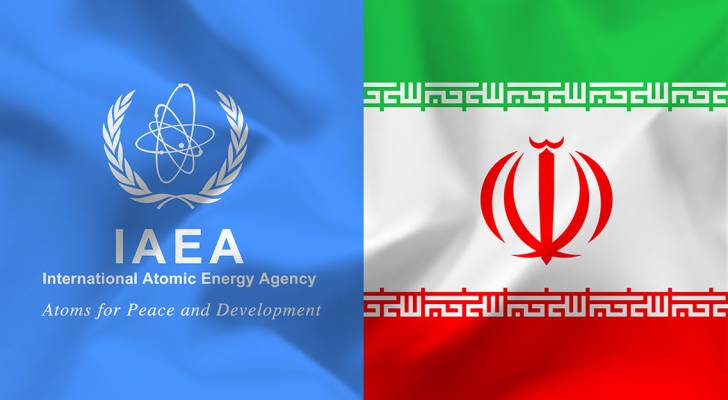Iran says return of IAEA inspectors not full resumption of cooperation
Iran said Wednesday that the return of International Atomic Energy Agency (IAEA) inspectors does not signal a full resumption of cooperation with the agency.
The statement came after the IAEA's director-general confirmed a team had returned to the Islamic Republic for the first time since the end of its war with ‘Israel’.
IAEA Director-General Rafael Grossi had announced that a team of inspectors "had returned to Iran" for the first time since Tehran officially suspended cooperation with the agency last month.
Read more: Iran vows reciprocal action after Australia expels envoy
However, Iranian Foreign Minister Abbas Araqchi was quoted by the official IRNA news agency as saying, "The final text of the new framework for cooperation with the International Atomic Energy Agency has not been approved yet, and views are being exchanged."
Tehran suspended its cooperation with the U.N. agency after it failed to condemn ‘Israel's’ unprecedented war, which began on June 13.
‘Israel's’ attacks on Iranian nuclear and military facilities and residential areas killed more than 1,000 people.
The US later joined the war, striking three Iranian nuclear sites. Iran responded with missile and drone strikes that killed dozens in ‘Israel’. A truce was reached on June 24.
Under a law suspending cooperation, inspectors can only access Iranian nuclear sites with the approval of the Supreme National Security Council, the highest security body in the Islamic Republic. Iran maintains that cooperation with the IAEA will take a "new form."
Behrouz Kamalvandi, a spokesman for the Atomic Energy Organization of Iran, said IAEA inspectors will oversee the refueling of the Bushehr nuclear power plant in southwestern Iran.
He did not say whether inspectors would be allowed access to other sites, including Fordo and Natanz, which were hit during the war.
Talks in Geneva
Grossi's comments coincided with discussions in Geneva between Iran and the European trio of Britain, France, and Germany. The talks, the second round since the ‘Israeli’ attacks, focused on European threats to reimpose international sanctions on Iran before they are permanently lifted in mid-October.
The deadline for activating the "snapback mechanism," which was part of the 2015 nuclear agreement between Iran and major Western powers, and reimposing sanctions on Iran is Oct. 18.
During their previous meeting in July, the three European powers proposed extending the deadline if Tehran resumed negotiations with the United States and cooperation with the IAEA, according to the Financial Times.
Iran has insisted that the Europeans do not have the right to extend the deadline and said it is cooperating with its allies China and Russia to prevent the reimposition of sanctions.
On Tuesday, Russia distributed an updated proposal in the UN Security Council to extend the deadline for activating the "snapback mechanism" for six months, until April 18 of next year, according to a draft resolution. The Russian proposal does not set preconditions for the extension.
Dmitry Polyanskiy, Russia's deputy ambassador to the UN, said the "second version" of the proposal was designed to "allow more room for diplomacy," expressing hope that it would be "acceptable."
He told the media that the proposal "will be a real test to see who really wants to support diplomatic efforts and who does not want any diplomatic solution, but only seeks to achieve their national and selfish agendas against Iran."
Western countries and ‘Israel’ suspect that Tehran is seeking to acquire a nuclear bomb, which Iran denies, asserting its right to continue its nuclear program for civilian purposes.




